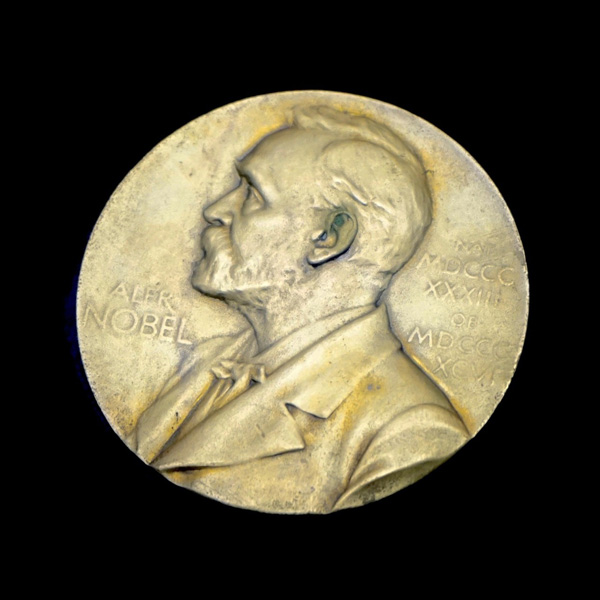Three scientists awarded the Nobel Prize in Physiology or Medicine for discoveries about immune self-control

[The Nobel Prize. Photo Credit: Pixabay]
The Nobel Prize in Physiology or Medicine was awarded to Mary E. Brunkow, Fred Ramsdell and Shimon Sakaguchi on October 6th for their discoveries on how the immune system is controlled to stop it from attacking the body’s own cells.
The three will receive the prize, revealed by Sweden's Karolinska Institute, in December for their ground-breaking research on peripheral immunological tolerance, which keeps the body safe from immune system damage.
Their research focused on managing the immune system to prevent autoimmune illness while enabling it to combat any germ.
The 11 million Swedish kronor ($1.17 million) reward will be split equally between Sakaguchi, 74 of Japan, and Brunkow and Ramsdell, both 64, of the United States.
They will also receive gold medals from the Swedish monarch.
The prize-awarding organization said in a statement that their findings have sparked the creation of new medicines, such as those for autoimmune illnesses and cancer, and established a new area of study.
The Nobel Committee head, Olle Kampe, emphasized that the three have made significant contributions to the knowledge of the immune system's operation.
Sakaguchi made the first major discovery in 1995, while Brunkow and Ramsdell made another breakthrough in 2001.
Two years later, Sakaguchi connected all of their work.
The researchers' findings about T cells, the white blood cells that combat infection in the body, were at the heart of their investigation.
They discovered a subset of cells called regulatory T cells and the genes that govern them.
Their research provided answers to the following perplexing biological questions: How does the immune system know not to target the body's own healthy cells? And how are immune system cells prevented from causing chaos if they inadvertently miss the message?
Immunology specialist Dr. Sakaguchi is affiliated at the University of Osaka and before moving back to Japan in the 1980s, he was a researcher at Stanford University and Johns Hopkins University.
Dr. Brunkow began her research on autoimmune illnesses and genetics at the Institute for Systems Biology in Seattle in 2009.
She earned her Ph.D. in molecular biology from Princeton.
Dr. Ramsdell co-founded the San Francisco-based company Sonoma Biotherapeutics, where he serves as a scientific adviser.
He graduated from the University of California, Los Angeles with a Ph.D. in immunology and served as a top executive at a number of other biotech businesses before joining SonomaBio.
During a press conference held on the University of Osaka campus, Dr. Sakaguchi expressed his gratitude and surprise at the award.
According to Dr. Brunkow, she had no expectation of receiving a Nobel Prize.
She stated in an interview that she initially thought it was spam when her phone rang and she noticed a number from Sweden, so she turned it off and went back to sleep.
This year is the 116th time the Nobel Prize in Physiology or Medicine has been awarded since 1901.
Japan has a long and esteemed history of producing Nobel laureates in the field of medicine and physiology.
Tasuku Honjo received the prize in 2018 for his role in the development of a novel cancer treatment and Yoshinori Ohsumi received recognition for his autophagy study in 2016.
Sakaguchi is the sixth Nobel laureate in Physiology or Medicine from japan and the 26th in the sciences.

- Sian Choi / Grade 11
- Yongsan International School of Seoul

![THE HERALD STUDENT REPORTERS [US]](/assets/images/logo_student_us.png)
![THE HERALD STUDENT REPORTERS [Canada]](/assets/images/logo_student_ca.png)
